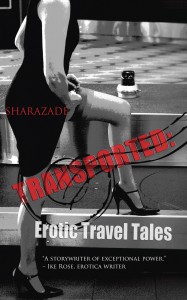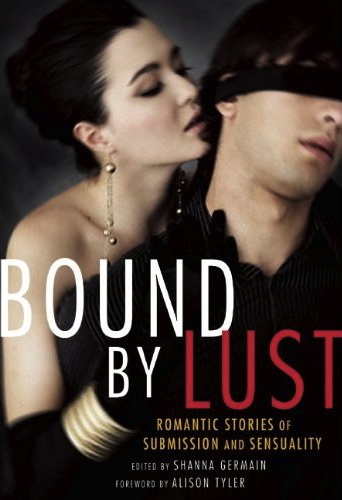Fellow erotica author and Facebook friend Gregory Allen made a post on his page recently that mentioned the theatrical maxim “Acting is reacting.” Because I’m ever so witty on Facebook, that prompted me to respond, “Does that mean that ‘writing is rewriting’?” (slaps knee again)
It is, though, isn’t it? I mean, it’s lucky that we’re not stone carvers, because inevitably, whatever we write, no matter how inspired or well planned, is going to need some reworking once it’s done.
First, of course, I look a piece over on my own. However, unless something is really bothering me, I notice that I tend to do more editing than revising — that is, I’ll swap out a few words for better choices, I’ll fix a typo or two, I might add some more details or combine some sentences. It’s rare that I’ll make sweeping changes to structure or character or plot.
I wish I could say that’s because those larger elements never need to be changed. But alas, it’s more that I have trouble seeing the changes that need to be made. For those larger elements, then, what I need is an outside reader — someone to read my story and give me a critique.
I’ve published over 20 books, now, of one type or another, and countless journal articles and magazine pieces and blog entries. I’m a good writer. I sell stuff. And yet… and yet… it is still surprisingly hard to offer something up to “other eyes.”
Harder still to get the piece back — with suggestions. Or criticisms (and isn’t any suggestion actually a criticism at some level?). It’s funny, of course, because the entire point of asking someone to critique a piece is to get suggestions on what to change. If I really thought it was absolutely perfect as is, there’d be no need to show it to anyone (except an adoring public with their pocketbooks out). When critiquers respond only with “That was great, I wouldn’t change a thing,” I worry that they’re not being honest, or that they’re simply not astute to find the flaws that must be there.
When I do get the suggestions back, though, I know that, inevitably, I must go through what I’ve come to think of as The Four Stages of Rewriting:
1) Denial. Yes, that’s right — I’ve asked for advice, and now that I have it in hand, I argue against it. My hero is weak? No, he isn’t. My heroine sounds snotty? No, she doesn’t. And my piece is not too long/too short/too pornographic/not sexy enough. If you can’t see its brilliance, then you just didn’t get it. It’s perfectly fine how it is!
This stage never lasts too long, because it so easily bleeds into the next stage, namely:
2) Anger. And just who the hell is he to say that my writing is flat? What’s he published — recently? I read her poem last week; I thought it trite. So where does she get off telling me my plot is overused? I guess some people feel they have to criticize in order to be useful. Harumph!
After I’ve had a good seethe comes the next stage:
3) Grief. I thought it was good. I really did. I thought I was done. I worked so hard on this! I wanted to submit it next week. I spent all that time researching prices of pensions in southern France, and everyone says that scene should be cut entirely. This is too hard. I’m not a good enough writer to make this work.
But finally, thank goodness, I get to
4) Acceptance. OK, it’s not perfect. And if three people say my heroine sounds snotty, then I need to adjust that, because that wasn’t the effect I wanted. No one said it was awful, after all, just that it needed some tweaking. If I cut out the opening paragraph and start with the action, it really is a better story.
I think it’s important to point out that “acceptance” is not the same as “agreeing with every suggestion you get.” It only means that you realize that a reader sees something you didn’t intend. You may want to change it, and then again, you may not. Final choice rests with the author. However, if several readers all offer a similar criticism, you’d be foolish not to listen. I know that’s hard. I just offered a short piece up for critique and two very different readers objected to the same sentence, which had been one that I really liked. Well, it could be a fine sentence, but just not for this piece. I sort of skimmed over the first reader’s objection, then stopped and paused again at the second reader’s objection… I might have to give it another day or two, to get over my denial and grief (it’s only one sentence, I’ll just skip anger altogether!), and then I’ll change it.
I’ve been writing and publishing since 2001, and professionally editing since 2003. I’ve worked with new authors and experienced authors, authors of fiction and authors of non-fiction. I’ve seen those four stages in myself and in my authors over and over again. I don’t know that the four stages ever go away completely. But I do think I get through them faster now, and at least I can see of some of my resistance for what it is — mere resistance, and not the Defense of True Art.
Best advice I could give a new author would be not to respond to an email or discussion while wallowing in stages 1, 2, or 3. Take your time, take a break, take a deep breath, and get over it. Get to stage 4, where you can make reasoned decisions about what to keep and what to change and how to change it.
Authors, I’m interested in hearing your thoughts on dealing with critiques!
* * * * *






